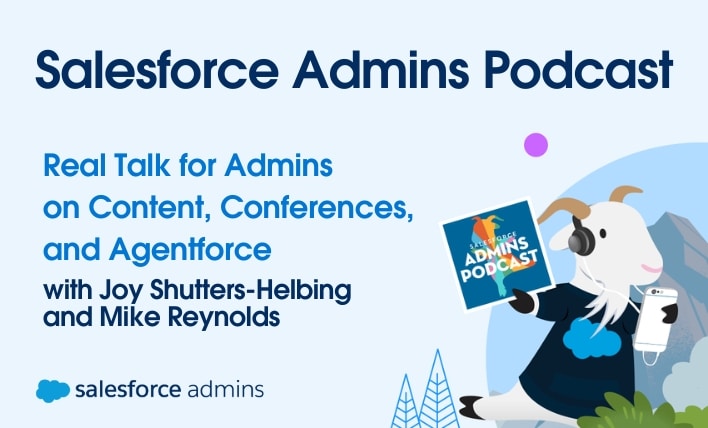Today on the Salesforce Admins Podcast we sit down with Barb Dietz, Sales Operations Analyst and Salesforce Administrator at NTT Data Services. She’s also one of the people behind Texas Dreamin’, where we were able to catch up with her to hear her incredible story. Join us as we talk about how to best take […]






